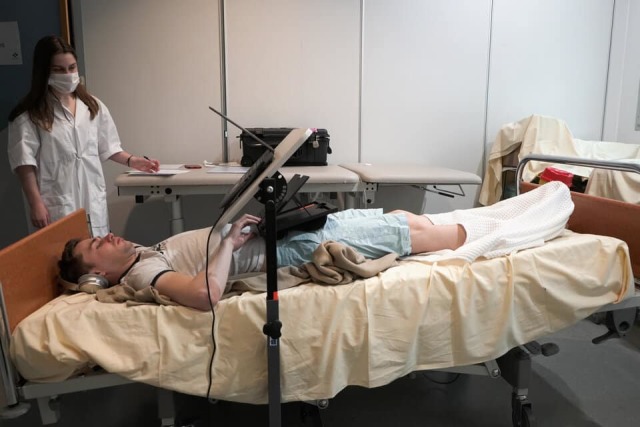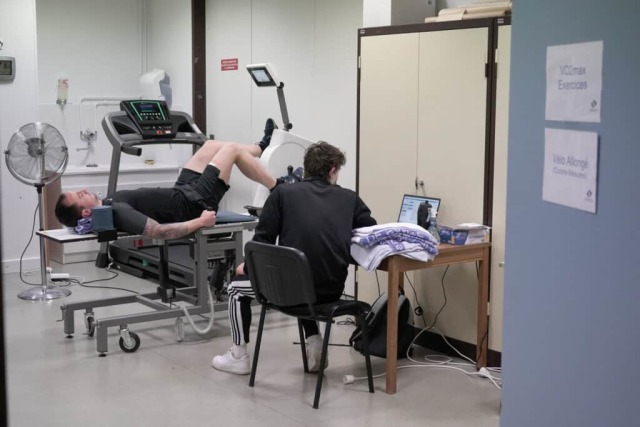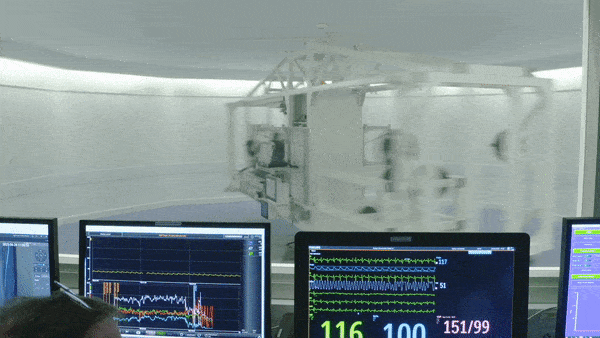The beds of the subjects on the side of the headboard will be tilted six degrees down, and the legs will be raised up. In such a reclining position, you will have to wash, eat, and go to the toilet.
Twelve volunteers will participate in the BRACE study, which is being conducted by the European Space Agency with the support of the National Space Research Center of France. The subjects will have to lead a semi-recumbent lifestyle for two months, being in beds tilted six degrees down, with their legs raised upside down.
No activities are expected for the control group, but the other two groups will train on bicycles in parallel — either lying down or in a centrifuge, where artificial gravity conditions will be simulated.
"We will compare the effects of daily exercise on various physiological parameters," explained Rebecca Billett, head of clinical research at MEDES, the Institute of Space Medicine and Physiology in Toulouse.

This is how the experiment will be conducted for the control group
Image source: European Space Agency
So the researchers plan to study the body's reaction to space conditions — when blood rushes to the head and muscles weaken — and ways to avoid negative consequences for the body.
"We hope to understand the added value of artificial gravity for training astronauts on the International Space Station. The crew trains in orbit for two hours a day," added Angelika Van Ombergen, ESA's head of Biological Sciences.

Lying down on an exercise bike
Image source: European Space Agency
Since 2001, the European Space Agency has been conducting regular studies of bed rest of varying duration with both men and women. Next time the tests will be held at the Jozef Stefan Institute in Slovenia: among other things, 12 people will be engaged in vibration gymnastics.

